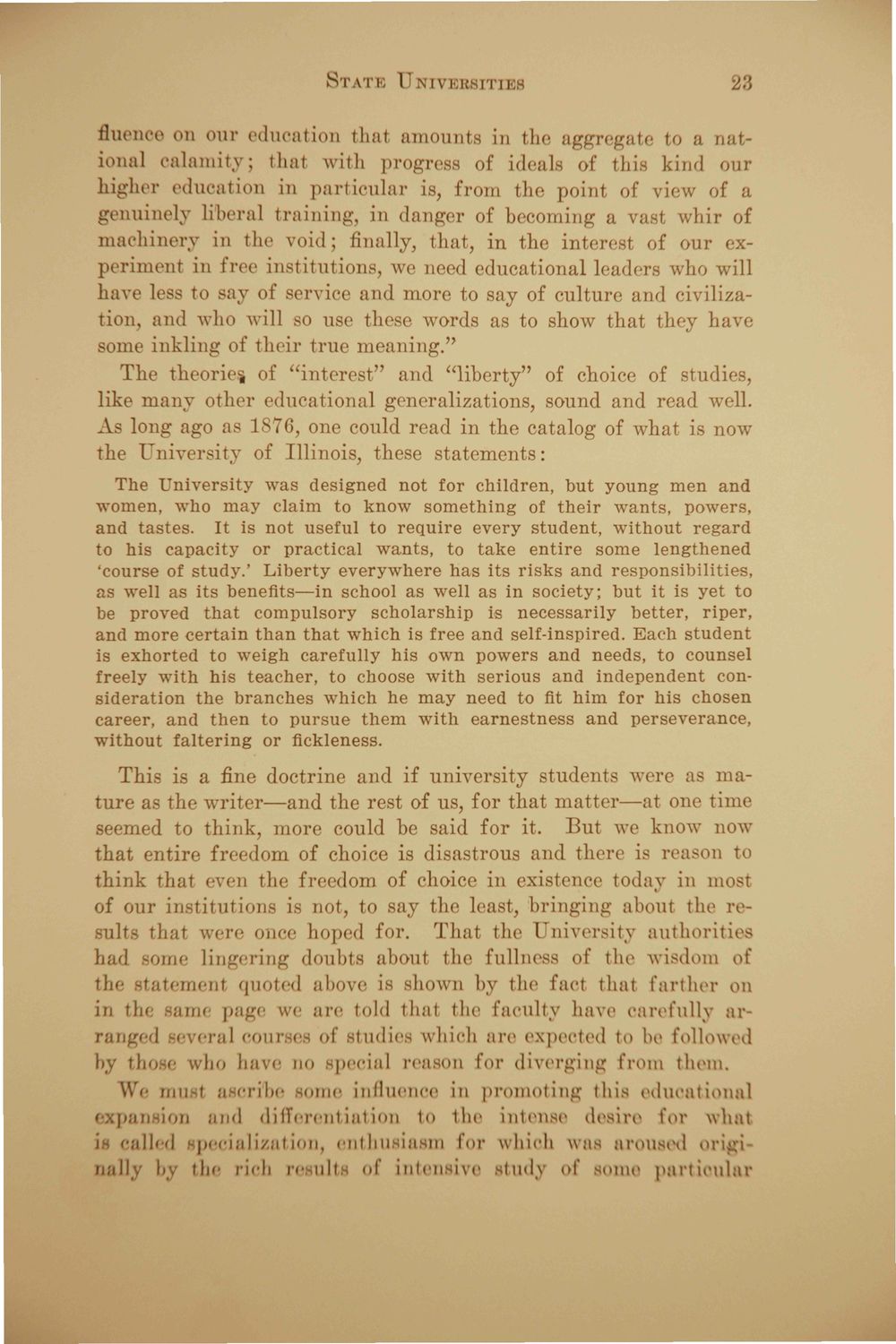Caption: Booklet - Kinley Speech Cirrculum and Consequences (1924)
This is a reduced-resolution page image for fast online browsing.

EXTRACTED TEXT FROM PAGE:
STATE UNIVBB8ITIJ)S % fluenoe on our education thai amounts in the aggregate to a rial ional calamity; thai with progress of ideals of this kind our higher education in particular is, from the point of view of a genuinely liberal training, in danger of becoming a vast whir of machinery in the void; finally, that, in the interest of our experiment in free institutions, we need educational leaders who will have less to say of service and more to say of culture and civilization, and who will so use these words as to show that they have ome inkling of their true meaning." The theories of "interest" and "liberty" of choice of studies, like many other educational generalizations, sound and read well. As long ago as 1876, one could read in the catalog of what is now the University of Illinois, these statements: The University was designed not for children, but young men and women, who may claim to know something of their wants, powers, and tastes. It is not useful to require every student, without regard to his capacity or practical wants, to take entire some lengthened •course of study.' Liberty everywhere has its risks and responsibilities, as well as its benefits—in school as well as in society; but it is yet to be proved that compulsory scholarship is necessarily better, riper, and more certain than that which is free and self-inspired. Each student is exhorted to weigh carefully his own powers and needs, to counsel freely with his teacher, to choose with serious and independent consideration the branches which he may need to fit him for his chosen career, and then to pursue them with earnestness and perseverance, without faltering or fickleness. T h i s is a fine doctrine a n d if u n i v e r s i t y students were as mat u r e as t h e w r i t e r — a n d the rest of us, for t h a t m a t t e r — a t one tim eemed to t h i n k , m o r e could be said for it. B u t we know now t h a t e n t i r e freedom of choice is disastrous a n d t h e r e is reason to t h i n k that even the freedom of choice in existence today in most t f our i n s t i t u t i o n s is not, to say the least, b r i n g i n g about the results t h a t were once hoped for. T h a t (he University a u t h o r i t i e s had >me lingering doubts about the fullness of the wisdom of on the statement quoted above is shown by (he fact that farther in the ame page we arc told thai the faculty have carefully ai ranged Several COUr s of Studies which arc expected to be followed by tie who have no special reason for diverging from them, We mus1 ascribe sonic influence in p r o m o t i n g ibis e d u c a t i o n a l « .pansion and differentiation to tho intense desire for what is Called specialization, e n t h u s i a s m for which was aroused origiMy by the rich r68Ult8 of intensive study of some p a r t i c u l a r
|